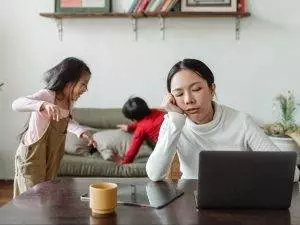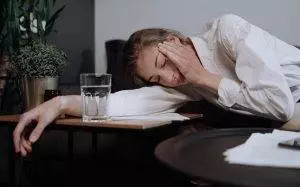-
 Art of Wellness Acupuncture & Traditional Chinese Medicine (TCM)11704 Wilshire Blvd, Suite 295, Los Angeles, CA, 90025
Art of Wellness Acupuncture & Traditional Chinese Medicine (TCM)11704 Wilshire Blvd, Suite 295, Los Angeles, CA, 90025
myartofwellness@gmail.com310-451-5522 Office Hours
MonClosedTue7:30 am --4 pmWed7:30 am --4 pmThu7:30 am -- 4 pmFri7:30 am -- 4 pmSat7:30 am -- 4 pmSunClosedOur office opens from Tuesdays to Saturdays 7:30 am to 4 pm, will be closed on Memorial day, Independent day, Labor day, Thanksgiving day, Christmas and New year.
-
Recent Posts
- How to Treat Metabolic Syndrome With Acupuncture and TCM
- How to Treat Syncope With Acupuncture and TCM
- How to Treat Thoracic Outlet Syndrome With Acupuncture and TCM
- How to Treat Dupuytren’s Contracture With Acupuncture and TCM
- How to Treat Nutcracker Syndrome With Acupuncture and TCM
- How to Treat Rosacea With Acupuncture and TCM
- How to Treat Perioral Dermatitis With Acupuncture and TCM
- Lymphatic Drainage With Acupuncture and TCM
- How to Treat Turf Toe With Acupuncture
- How to Treat Nerve Pain With Acupuncture and TCM
- How to Treat Watery Eyes With Acupuncture and TCM
- How to Treat Ovarian Cysts With Acupuncture and TCM
- How to Treat Dystonia With Acupuncture and TCM
- Can Acupuncture Help Bad Breath?
- How to Treat Atopy with Acupuncture and TCM
- Plantar Fasciosis Treatment With Acupuncture and TCM
- Sign up to receive news and updates and get my free report:“The Top 10 Reasons to Try Acupuncture”

September 2025 M T W T F S S 1 2 3 4 5 6 7 8 9 10 11 12 13 14 15 16 17 18 19 20 21 22 23 24 25 26 27 28 29 30
Traditional Chinese Medicine
How to Treat Myasthenia Gravis With Acupuncture and TCM
By Qineng Tan, L.Ac., Ph.D. & Xiaomei Cai, L.Ac., Ph.D.

Muscle weakness around the eyes, drooping eyelids (ptosis), double vision, blurred vision (diplopia), impaired speech? These are potential signs of Myasthenia Gravis, an autoimmune disorder that affects the voluntary neuromuscular system, especially around the eyes, mouth, and throat, and the limbs. Acupuncture and TCM offer an adjunct treatment for Myasthenia Gravis symptoms.
As with some other autoimmune diseases, Myasthenia Gravis causes antibodies produced by the body’s own immune system to attack healthy cells instead of pathogens. In the case of Myasthenia Gravis, the immune cells attack receptors on certain groups of muscles, which blocks chemicals required to stimulate voluntary muscular contractions.
A person can develop Myasthenia Gravis at any age, but the disorder is twice as prevalent among women between 20 and 40. Myasthenia is a chronic condition that cannot be completely cured. However, the symptoms can often be controlled with medications and/or other types of treatment for myasthenia gravis.
Many people with Myasthenia Gravis are able to improve their muscular strength with the right combination of treatments and maintain their normal activities. Acupuncture and other TCM modalities can be used as an adjunct therapy to improve quality of life and keep functionality strong, helping to control this autoimmune disorder.
What Causes Myasthenia Gravis?
Our voluntary muscular movements rely on the ability of our muscles to receive communications through the nervous system. There are various neurotransmitters that interact with receptors on the muscles and the proteins that make up the chemical connections between nerves and muscles. Some people with Myasthenia Gravis seem to have antibodies that are damaging or destroying these key receptors and/or proteins. Other people with Myasthenia Gravis, however, do not show unusual antibody activity (seronegative myasthenia gravis or antibody-negative myasthenia gravis), but doctors believe they must still be experiencing some form of autoimmune dysfunction affecting the nerves and muscles.
The thymus gland plays a part in immune function and is believed to play a role in the production of these antibodies that block receptors. Some people with Myasthenia Gravis had an enlarged thymus gland, or a tumor or tumors on the thymus gland.
In rare cases, a baby may be born with a form of congenital Myasthenia gravis; this is called congenital myasthenic syndrome.
People with Myasthenia Gravis may also have problems with their thyroid gland, and may be more likely to show signs of other autoimmune disorders, like rheumatoid arthritis, or lupus.
Symptoms of Myasthenia Gravis

More than half of people who end up discovering that they have Myasthenia Gravis first present with eye problems, such as double vision, blurry vision, or droopy eyelids. But the signs can also show up in the throat, with trouble swallowing, or in the mouth area, with trouble forming words, chewing food, or even breathing.
Signs of myasthenia gravis include:
- Weakness of the muscles around the eyes (ocular myasthenia)
- Drooping eyelids (ptosis)
- Double vision or blurred vision (diplopia)
- Speech problems, impaired speech (dysarthria), trouble pronouncing words
- Shortness of breath
- Change in facial expressions
- Muscular weakness in the neck, arms, hands, or legs
- Difficulty holding up the head, neck problems
- Fatigue, especially muscle fatigue
Symptoms of Myasthenia Gravis often seem to abate in the early part of the day, after a night’s rest, and then worse as the day goes on, and a person has been more active. In other words, the muscle weakness tends to improve with rest, and get worse with exertion.
Like some other autoimmune disorders, Myasthenia Gravis symptoms can come and go, sometimes flaring up and at other times going into remission. Some issues that can exacerbate symptoms might be:
- Infection or illness
- stress
- Fatigue, overwork, not enough sleep
- Surgery
- Menstrual period
- Pregnancy
- Certain medications, including some antibiotics, anesthetics, or beta blockers
The most serious form of Myasthenia Gravis occurs if the muscles that control the breathing apparatus become so weak and fatigued that a person cannot breathe; this is a medical emergency called a “myasthenia crisis,” and requires immediate medical intervention.
Myasthenia Gravis Treatment
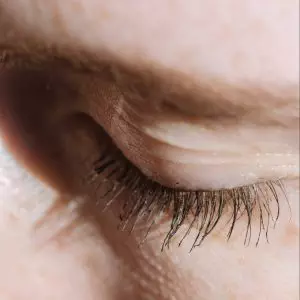
It can be a difficult process being definitely diagnosed with Myasthenia Gravis. Problems with balance, coordination, reflexes, and muscle strength may show up in a neurological exam, but they do not prove definitively what is going on. When the eyelids are drooping, doctors will often perform a test where they ice the area for two minutes to see if this improves the problem. A blood test may show a higher than normal level of antibodies of the type that affect the muscle receptors or proteins. A CT or MRI may reveal a tumor on the thymus.
Other conditions that may appear similar to Myasthenia Gravis include ALS and botulism.
Doctors will prescribe different medications to treat Myasthenia Gravis, either alone, or in combination, depending on the severity and type of symptoms. Corticosteroids and immunosuppressants can reduce the production of antibodies. Plasmapheresis can remove some of the overload of antibodies already in the system. Intravenous immunoglobulin introduces healthy antibodies that can cancel out the malfunctioning ones. Cholinesterase inhibitors can help boost the communication between the nervous system and the muscles. Unfortunately, all of these medications can come with side effects.
Surgical removal of the thymus gland if there is a tumor, or even in some cases when there is no tumor but the gland is believed to be a contributing factor, may help relieve the condition.
Acupuncture and TCM, when used as an adjunct, can help alleviate symptoms of the disorder itself, and help mitigate the side effects of other treatments.
Can TCM Herbs and Acupuncture Help Myasthenia Gravis?
Myasthenia Gravis causes miscommunications between the nervous system and the muscles. Acupuncture treatment can be beneficial for many different types of neurological, musculoskeletal, and autoimmune disorders because it has a positive impact on the communications between the various systems of the body.
TCM treatment with an experienced acupuncturist can be very helpful for patients with Myasthenia Gravis, as we take all aspects of your health into consideration while also focusing on the symptoms related specifically to this autoimmune condition. For example, acupuncture can help with sleep, feelings of anxiety and depression, problems with appetite and digestion, as well as with the muscular weakness associated with Myasthenia Gravis.
One study tested the effects of acupuncture treatment on ocular myasthenia, or eye-related symptoms. Over 90% of the patients treated experience significant improvement in their symptoms.
Chinese herb preparations used in addition to Western conventional medicines can help patients with Myasthenia Gravis. A study compared two groups of patients: one treated with corticosteroids (Prednisone), and one treated with both Prednisone and Chinese herbs. After three months, the patients given herbs showed more improvement, and were able to reduce the amount of corticosteroids needed.
A review of several studies done in China of acupuncture treatment used as complementary treatment for Myasthenia Gravis concluded that patients who had acupuncture reported better clinical outcomes than people who only received the standard pharmaceutical treatments.
While it may be challenging, it is good to include physical activity and even muscular strength training, as it is possible for patients to help overcome muscle weakness with regular exercise. Your TCM practitioner can help you follow an appropriate nutrition and movement program.
Acupuncture Near Me for Myasthenia Gravis in West Los Angeles
TCM is well-suited to help patients who suffer from both autoimmune disorders and neurological and muscular problems of all kinds because it works on multiple levels to help quiet pain signals while boosting communication signals between the different systems of the body. Dr. Tan and Dr. Cai have over 30 years of experience helping people recover from chronic illnesses like Myasthenia Gravis.
*This article is for education from the perspective of Traditional Chinese Medicine only. The education provided by this article is not approved by FDA to diagnose, prevent, treat and cure human diseases. It should not stop you from consulting with your physician for your medical conditions. Traditional Chinese Medicine is based on Qi, which is an invisible force that usually cannot be observed by modern science. Because science focuses on testing ideas about the natural world with evidence obtained through observation, these aspects of acupuncture can’t be studied by science. Therefore acupuncture and Chinese herbs are often not supported by double-blind, randomized trials, and they are considered alternative medicine therapies in the United States.
How to Treat Huntington’s Disease With Acupuncture and TCM
By Qineng Tan, L.Ac., Ph.D. and Xiaomei Cai, L.Ac., Ph.D.
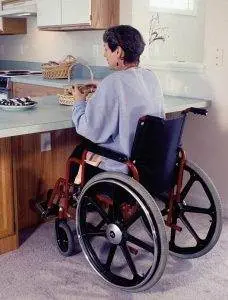
Huntington’s disease is a rare genetic disorder that causes progressive neurodegenerative disease. A neurological disorder, Huntington’s causes damage to brain cells, which leads to physical symptoms like tremor, cognitive problems, and mental disorders, including feelings of depression.
Signs of Huntington’s disease (HD) can begin to show up at any time after age two, and in some cases, a child may develop juvenile Huntington’s disease. Most often, though, a person does not begin to have symptoms of Huntington’s disease until adulthood, usually when they are in their 30s or 40s. Huntington’s is a progressive disease in which symptoms become increasingly severe over time.
Medical science does not currently have a cure for Huntington’s, nor a treatment that will halt the progression of Huntington’s disease. Patients may receive treatment in the form of medications and physical therapy to help control physical symptoms like shaking hands and involuntary movements. They may also be prescribed psychiatric medications to try to help with depression and anxiety.
Acupuncture and TCM can be an effective adjunct and alternative treatment for Huntington’s disease, helping to protect and stimulate the nervous system. TCM can also help address mental health and emotional disorders, like depression, anxiety, and mood swings.
Huntington’s Disease Symptoms
People with Huntington’s disease may start off having a variety of mild symptoms. Over time, the symptoms may change, with some coming or going, and some getting worse. Signs of Huntington’s disease can be related to involuntary movements of the body, cognitive decline that affects a person’s thinking processes, and psychiatric disorders that cause emotional upset. Some of the most common symptoms of Huntington’s disease include:
- Uncontrollable movements: involuntary jerking of the limbs, or writhing, also known as chorea
- Stiff limbs, muscle stiffness, neck stiffness
- Tremor, shaky hands, difficulty holding things
- Slow or unusual eye movements
- Problems with balance or walking
- Difficulty swallowing
- Speech problems, slurred speech
- Having a hard time focusing on a a task
- Having a hard time finding the right words or processing information
- Getting completely caught up with a task or thought pattern
- Impulsive behavior or emotional outbursts
- Lack of awareness of how one is behaving or one’s own changing abilities
- Feelings of apathy, sadness, depression, suicidal ideation
- Manic behaviors or OCD (obsessive-compulsive disorder)
- Trouble sleeping, insomnia
- Extreme fatigue
- Weight loss
Symptoms of Huntington’s disease worsen gradually over time, until ultimately, a person will need assistance to move and eat.
What Are the 5 Stages of Huntington’s Disease?
Huntington’s is a progressive disorder of the brain that causes symptoms to increase in severity over the course of several years. The progression from experiencing mild symptoms to needing assistance due to disability could take 10 years, or a person might live another 30 years.
Sometimes you will hear doctors refer to 3 stages of Huntington’s Disease, or the following 5 stages:
- Preclinical Stage – during this time, a person with Huntington’s may begin to notice mood swings, irritability, and other emotional and cognitive issues beginning to develop, but they have not yet been diagnosed with Huntington’s.
- Early Stage – as physical symptoms like tremors and trouble with eating and sleeping begin to become more and more noticeable, a person will seek medical help and be diagnosed. At this point, they can still carry on with most normal activities without help.
- Middle Stage – during the middle stages of Huntington’s a person will begin to need assistance with things like driving and domestic tasks, as they may not be able to coordinate movements reliably or think through problems or take in new information.
- Late Stage – as Hungtington’s disease progresses further, a person may have memory loss, dementia, and changes in personality. They will likely be bedridden and need help with eating, possibly requiring a feeding tube because of trouble swallowing.
- End of Life Stage – there comes a point when a person with Huntington’s will need end of life care, either in a hospital or at home, when they will need to be as comfortable as possible. The most common cause of death with Huntington’s is pneumonia, which can happen when a person aspirates food particles into the lungs.
How is Huntington’s Disease Inherited?
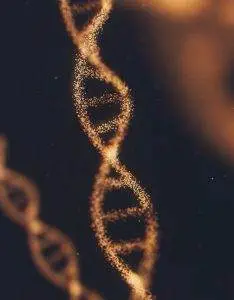
Huntington’s disease is a type of autosomal dominant disorder, which means that a person only needs to inherit one dominant gene from one parent in order to inherit this disorder. If a person has HD, there is a 50% chance that they will pass it on to a child. If a child of a person with HD does not inherit the gene, and therefore does not have HD, then that means they will not pass it on to their children. It is rare, but possible, for a person to be born with a new mutation in the specific gene, and so does not actually inherit HD from a parent.
Because HD typically does not begin to show up until close to middle age, some people who know that they may have the genetic mutation will have genetic testing for Huntington’s disease. This test will tell most people whether or not they will begin to develop Huntington’s symptoms as they age. However, there is a “gray area,” in which a person may have some of the mutated sequencing in their genetic makeup, but not enough to necessarily lead to the development of the disease. These people can still pass on the mutation to their children, and they may have a less severe form of Huntington’s, and/or not develop symptoms until later in life.
Can Acupuncture Help Huntington’s Disease?
Scientific research has been demonstrating more and more that acupuncture can help with many conditions by maintaining the health and connectivity of brain cells and nerve cells. Cells are constantly going through processes of generation and degeneration. The stimulation of certain acupoints has been shown to have a positive effect on these processes, which can be beneficial for people with neurological disorders like HD and Parkinson’s.
Even though we know that Huntington’s and Parkinson’s are specifically related to protein production, we also know that disease is not merely about one small, isolated thing happening in the body. We must take the whole person into account. Stress and many other factors also play a role in how a disease affects each individual. Acupuncture can be a helpful modality that reduces stress in the body and facilitates regeneration and protection of cells.
With TCM, we are able to address the physical, mental, and emotional aspects of Huntington’s disease all at the same time.
Chinese herbs have traditionally been used to help symptoms such as tremors, stiff limbs, muscle weakness, and slow movements. While from the medical point of view these problems are related to the nervous system, in TCM theory we also see them as being related to deficiencies in the kidney Qi, and excess wind. Therefore, herbs that help strengthen the Kidneys and dispel wind may be used in different combinations to treat conditions like Huntington’s disease.
Acupuncture treatment has been shown to help reduce tremors and shaky hands. One study showed that Chinese herbal preparations were effective at helping to reduce involuntary movements. Another study showed that herbs helped with the normal production of proteins and brain cell function.
Neurological Treatment With Acupuncture

Acupuncture and TCM can help with many different kinds of neurodegenerative disorders, whether they are caused by genetics, autoimmune disease, or some other neurological problem.
Neurodegenerative diseases cause the degeneration and death of neurons, or brain cells that communicate with the nervous system. In that sense, Huntington’s disease bears some similarities to other neurodegenerative diseases like:
- Parkinson’s disease
- Alzheimer’s disease
- ALS (Lou Gehrig’s disease)
- Spinal muscular atrophy
- Essential Tremor
- Multiple Sclerosis (MS)
- Bell’s Palsy
- Guillain-Barre syndrome
Many of these conditions can be helped with acupuncture, which is known to help improve the health of the brain, nerves, spinal cord, and the electrical impulses that create connectivity and functionality in the movements of the musculoskeletal system. TCM modalities can also help to relieve stress, improve sleep, boost cognitive function, and regulate mood swings.
Acupuncture Near Me for Huntington’s Disease, Los Angeles Area
Huntington’s disease is a progressive illness, and it becomes harder and harder for a person with HD to communicate what they are feeling. People with Huntington’s may experience both physical and emotional pain. Patients with Huntington’s need a caring team of healthcare providers who can help treat the disease, but also help their emotional and mental health.
At Art of Wellness, we have over 30 years of experience helping people with neurodegenerative disorders feel more comfortable and live the fullest life possible.
*This article is for education from the perspective of Traditional Chinese Medicine only. The education provided by this article is not approved by FDA to diagnose, prevent, treat and cure human diseases. It should not stop you from consulting with your physician for your medical conditions. Traditional Chinese Medicine is based on Qi, which is an invisible force that usually cannot be observed by modern science. Because science focuses on testing ideas about the natural world with evidence obtained through observation, these aspects of acupuncture can’t be studied by science. Therefore acupuncture and Chinese herbs are often not supported by double-blind, randomized trials, and they are considered alternative medicine therapies in the United States.
How to Treat the Common Cold With Acupuncture and TCM
By Qineng Tan, L.Ac., Ph.D & Xiaomei Cai, L.Ac., Ph.D.
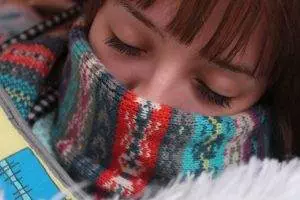
Sneezing, runny nose, nasal congestion, cough? How can you tell if it’s a cold symptom, a flu, COVID-19, mononucleosis, croup, or maybe an allergy? All of these illnesses can cause fatigue and a stuffy nose. The common cold, however, does not cause a high fever, and the cough is usually mild, not a persistent cough. Acupuncture and TCM herbs offer a highly effective way to relieve common cold symptoms.
A cold is a kind of viral infection that affects your upper respiratory tract, centering mostly in the nose and throat. Different viruses can cause the common cold; rhinovirus is the most common kind of cold virus.
You can catch a cold virus when you are near someone else who sneezes or coughs, and you get droplets containing the virus into your own nose, mouth, or eyes, or you touch something they coughed or sneezed on, and then touch your own face.
Young children and people with weakened immune systems are more prone to catching colds, as are people who smoke. You’re more likely to catch a cold if you spend a lot of time in crowded places, like schools, airports, public transportation, etc. More people get colds during the winter, because more people are packed together indoors, but cold-causing viruses are circulating all through the year.
You will start feeling cold symptoms within a few days of being exposed to the virus. Typically, without any medical intervention, a cold will last about a week or ten days. For some people, though, a cold can lead to other, more serious infections, like an ear infection, asthma and wheezing, sinusitis/sinus infection, bronchitis, or even pneumonia.
Cold symptoms aren’t so much caused by the virus, but by the workings of the body’s own immune system to expel the virus. Coughing and a runny nose are the body’s way of getting the virus out of the respiratory system. While the common cold doesn’t necessarily require any medical treatment, it is best to take steps to strengthen your immune system and clear the virus as soon as you can.
Chinese herbs and acupuncture treatment are an excellent way to shorten the duration and lessen the severity of a cold. Regular acupuncture treatment also functions as preventive medicine, so that you and your family don’t catch cold nearly as often.
Top 10 Common Cold Symptoms
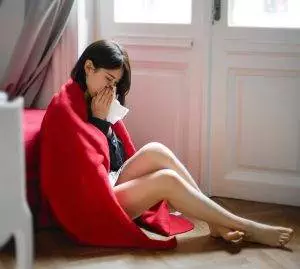
How can you tell if you have a cold or a flu? Usually, cold symptoms are more centered in the nose and throat, and are milder than flu symptoms. A flu is more likely to cause serious fatigue, chills and fever, and body aches than a cold is.
The typical symptoms of common cold include:
- Runny nose, stuffy nose, nasal congestion
- Sneezing
- Sore throat
- Cough
- Post-nasal drip
- Watery eyes
- Headache
- Body aches
- Low grade fever
- Fatigue, feeling tired
Sometimes people differentiate between head cold symptoms and a chest cold. A head cold describes the way most rhinovirus colds manifest in the upper respiratory organs: with a stuffed up nose, sniffling, headaches, and a red, sore throat.
If the cold “moves” down into the chest, causing inflamed bronchial tubes, and mucus production in the lungs, this is called acute bronchitis. This feels more like chest congestion, with a more persistent cough. Once a cold turns into bronchitis, you are more likely to have a serious cough, with or without coughing up phlegm.
How Is the Common Cold Usually Treated?
The accepted wisdom is that there is no cure for a cold; you just have to do whatever you can to make yourself more comfortable while the illness runs its course. Antibiotics only help get rid of bacterial infections. They do not help when you have a viral infection.
While it is true that there is no medication you can take to get rid of a cold, there are many remedies, both traditional home remedies for cough, and popular over-the-counter medicines and health store supplements that claim to take care of your cold symptoms.

Many people swear by things like Vitamin C, Zinc lozenges, or echinacea preparations. Other people will tell you to drink hot honey water and eat chicken soup. All of these natural cold remedies may have some benefits. At least, they don’t do any harm.
Other cold medicines may do more harm than good. Cough suppressants and nasal decongestants actually work against your body’s natural defenses. Your body is producing mucus and the cough reflex in order to expel the virus and keep it out of your lungs. Repressing these natural immune responses can prolong your cold.
Nasal decongestants like Sudafed can cause a fast heart rate and jittery feelings, especially in young children. Cough syrup with antitussive properties, or cough suppressant, can have negative side effects besides just making you drowsy or irritable. Some cough medicines can interact with other medications, making them inappropriate for people who have problems like high blood pressure, enlarged prostate (BPH), or glaucoma.
Trying to power on through your days with the help of OTC cold relief medications, caffeinated drinks, and sugary cough drops, without getting the rest you need, is not a good idea. Getting extra rest and drinking plenty of fluids are definitely tried and true ways to get over your cold.
Consider that acupuncture and herbal medicine developed over centuries of TCM tradition can help address cold symptoms without any side effects, and may help you recover more quickly than rest alone.
TCM for Colds: How to Get Rid of a Cold Fast

In TCM we consider some conditions to be external, meaning that they come from outside the body, in the form of pathogenic factors like heat, cold, wind, and dampness. Based on the environment, and the types of symptoms, we determine whether a cold follows a pattern of a cold-wind type, or a heat-wind type, or sometimes a hot-damp type as might occur during the summertime. An acupuncture practitioner will then base the treatment on the pattern of cold presented.
Acupuncture treatment influences the immune system’s response, and since that is what is actually causing the symptoms of a cold, the use of acupuncture points for cold and sore throat can really have a positive effect on reducing cold symptoms.
Cupping is a TCM modality that may be used to help treat colds and other respiratory conditions. Cupping helps to relieve congestion and gets lymph and blood circulation moving.
When you come in with a cold, your TCM provider will tailor your acupuncture treatment and prepare an herb formula specific to your needs. That said, our patients who have been coming into Art of Wellness for many years know that there is a

standard formula that is excellent for “knocking out” a cold if you can catch it at the very beginning. Right when you begin to feel that tickle in the back of your throat, that is the time to reach for your supply of Yin Chiao pills!
Ginger tea, made by simply slicing a bit of fresh ginger and steeping it in hot water, is also a great way to stop a cold in its tracks, before it gets worse.
Acupuncture Near Me for Common Cold in Santa Monica, West LA
Making time for regular acupuncture “tune-up” visits can help keep your body and mind balanced and your immune system in good working order. In the ancient TCM tradition, acupuncturists used to treat their patients for free when they caught a cold type illness, because it meant they hadn’t done their job of boosting immunity well enough. Prevention is certainly the best medicine when it comes to colds and flus. When you do begin to feel the first signs of a cold, though, it isn’t too late. Come in for a treatment, or call us at Art of Wellness to order some herbs to be shipped to you. We can help you get over your cold symptoms quickly.
*This article is for education from the perspective of Traditional Chinese Medicine only. The education provided by this article is not approved by FDA to diagnose, prevent, treat and cure human diseases. It should not stop you from consulting with your physician for your medical conditions. Traditional Chinese Medicine is based on Qi, which is an invisible force that usually cannot be observed by modern science. Because science focuses on testing ideas about the natural world with evidence obtained through observation, these aspects of acupuncture can’t be studied by science. Therefore acupuncture and Chinese herbs are often not supported by double-blind, randomized trials, and they are considered alternative medicine therapies in the United States.
How to Treat Trigeminal Neuralgia With Acupuncture and TCM
By Qineng Tan, L.Ac., Ph.D. & Xiaomei Cai, L.Ac., Ph.D.
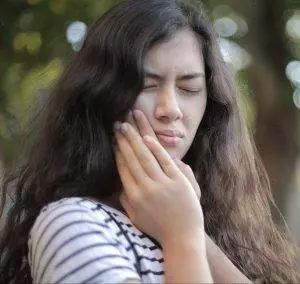
Sudden, sharp, shooting pain in the cheek or jaw that feels like an electric shock? Intense facial pain that lasts for a few seconds or a few minutes, and then goes away? This could be a sign of Trigeminal Neuralgia, a type of nerve pain or neuropathy that affects the nerves in the face. TCM and acupuncture provide a safe, effective trigeminal neuralgia treatment to relieve pain.
Trigeminal neuralgia is a chronic pain disorder associated with the trigeminal nerve, which branches out across the face along each eye, cheek, and the upper and lower jaws. It communicates signals from the face to the brain related to pressure and temperature, and is also involved with the motor action of chewing.
Neuropathy is a general term that refers to any kind of nerve damage or dysfunction that leads to sensations of pain, tingling, or numbness. When there is something wrong with the trigeminal nerve–maybe compression, a lesion on the nerve, or some other problem–then even a light touch, or eating something hot or cold, can cause a very intense pain signal. Trigeminal neuralgia is sometimes called tic douloureux, meaning “painful tic,” because the jolt of pain causes people to wince or grimace. Sometimes people think the pain they’re feeling is dental pain.
The pain of trigeminal neuralgia is often described in terms like: stabbing, burning, and excruciating pain. Sometimes people say it feels like a sudden electric shock. This pain may last only a few seconds, or a few minutes, or it can come and go over the course of hours or days.
Occipital neuralgia is a similar condition, in which the pain is in the back of the head and upper part of the neck. This occurs when the occipital nerves are irritated.
Trigeminal neuralgia pain often flares up on just one side of the face, sometimes isolated to one area. Pain may be around or behind the eye, across the cheek, along the jaw, or inside the mouth. Doctors categorize trigeminal neuralgia into 2 types:
- Type 1 – Typical – facial pain occurs in sporadic, sudden bursts which may last seconds or minutes, or come and go over the course of a few hours. There are periods of times between episodes when there is no pain.
- Types 2 – Atypical – pain in face is constant, with aching, burning sensations present over a widespread area.
Trigeminal neuropathy is similar in some ways to other cranial neuropathy conditions like Bell’s Palsy. In the case of Bell’s palsy, lack of blood flow to the 7th cranial nerve causes a temporary paralysis of the facial muscles and one side of the face to droop. Bell’s Palsy usually goes away after a while, but Trigeminal neuropathy tends to become a chronic condition that gets worse as time goes on.
Acupuncture and TCM are an excellent way to help relieve pain and dysfunction due to all types of neuropathies, including Bell’s Palsy, peripheral neuropathy, sciatica/sciatic nerve pain, piriformis syndrome, radiculopathy (pinched nerve) that can cause neck pain, thoracic or low back pain, or shoulder pain, occipital neuralgia, Morton’s neuroma, and carpal tunnel syndrome.
Acupuncture treatment can help not only to relieve pain caused by nerve disorders, but can actually help to repair damaged nerves, regenerate nerve tissues, and facilitate better communication throughout the nervous system.
Top 10 Trigeminal Neuralgia Triggers

Trigeminal neuralgia pain can occur spontaneously for no apparent reason, but it is often triggered by some sort of touch, movement, or other stimulus. Some common triggers of trigeminal neuralgia pain include:
- Brushing your teeth
- Eating or drinking something hot, cold, or spicy
- Touching your face, leaning your face on your hand
- Shaving facial hair
- Putting on makeup
- Washing your face
- Talking
- Smiling, laughing
- A breeze blowing in your face, wind in your face
- Vibrations from being in a car or airplane, etc.
While the nerve pain caused by trigeminal neuralgia is not life-threatening, and doesn’t really affect your ability to move your face, that doesn’t mean that it doesn’t have an impact on your life. Never knowing when you might suddenly experience severe pain is debilitating. Many people with this type of neuropathy pain can fall into a depression and even begin to experience suicidal thoughts because the thought of having to live with this kind of pain forever is scary.
What Causes Trigeminal Neuralgia?
Trigeminal neuralgia tends to occur more frequently in women, and in people who are over 50. While the exact cause is not always apparent, it usually has to do with a blood vessel creating extra pressure somewhere along the nerve. Sometimes it can be due to a head injury or a tumor in the brain. Multiple sclerosis (MS) can sometimes contribute to trigeminal neuralgia. Sometimes people develop trigeminal neuralgia after a dental procedure.
Trigeminal Neuralgia Treatment Medications
The medications most commonly prescribed for people suffering from trigeminal neuralgia are a class of drugs called anticonvulsants. These medications were originally intended to be used to treat seizures and epilepsy, but they have been found to help some people with neuropathy pain, too. Medicines like Neurontin and Topamax can help disrupt the nerve signals that are causing the pain.
The side effects of these medications can include dizziness, trouble concentrating or remembering things, drowsiness, headaches, vision problems, and nausea.
If a patient has not found relief from trigeminal neuralgia nerve pain with medication, then surgery may be attempted. Doctors may drill into the skull to expose the trigeminal nerve and try to remove blood vessels that may be pressing against the nerve. This is called microvascular decompression (MVD), and is an invasive operation that carries risks and requires a few weeks of recovery time. Not everyone gets pain relief from this procedure, in which case, other options may be tried.
Gamma knife radiosurgery and Radiofrequency lesioning are less invasive procedures that involve applying radiation or heat from an electrode to the trigeminal nerve. The idea is to purposely damage the nerve in order to stop the pain signals. In some cases, this can lead to numbness, or loss of sensation in the face. For some patients, the pain comes back in a matter of years, in which case the surgery can be repeated.
Acupuncture offers an alternative treatment that can relieve pain from trigeminal neuralgia without side effects or risk of permanent nerve damage.
Can Acupuncture Help Trigeminal Neuralgia?

According to the TCM view, different people can suffer from the same type of pain condition or disease but have different underlying problems that are the root cause of the pain. When treating individual patients, an acupuncture practitioner first listens carefully and observes all of a person’s symptoms to determine what kind of internal pathogens or imbalances may be contributing to the pain disorder.
In the case of trigeminal neuralgia, the cause may be related to a blockage in the stomach meridian, which extends into the same facial areas as the trigeminal nerve does. As with other neurological conditions (like Bell’s Palsy and Parkinson’s disease), this blockage may be related to an invasion of wind, either hot or cold, that affects the flow of Qi through the face and head.
In addition to acupuncture treatment, Chinese herbs can help strengthen Qi and help with the rejuvenation of nerve cells. It is also important for a person struggling with trigeminal neuralgia to be cautious of eating or drinking anything that is too hot or too cold. It is also advised that you avoid spicy foods, caffeine, sugar, and processed foods.
Acupuncture works as a natural analgesic to relieve pain, affecting the way that nerve cells transmit pain signals and activating the opioid receptors in the brain.
A case study of a woman who had suffered from trigeminal neuralgia pain for 25 years found that after six weeks of acupuncture treatment, she was free of pain, and was still free of pain six months later.
A review of studies related to trigeminal neuralgia treatments concluded that acupuncture was more effective for pain management of trigeminal neuralgia than medication or surgery, and had fewer adverse effects than either of the other solutions. Over a five year period, acupuncture treatment also cost significantly less money than other treatments.
A study that compared patients who had had trigeminal neuralgia symptoms for an average of 10 years. Half were treated with acupuncture and the other half treated with the anticonvulsant medication Carbamazepine. The acupuncture group reported a higher percentage of effective pain reduction; 95% of the patients found relief, with 30 out of 40 people reporting that their pain was totally resolved.
One study of a dozen patients treated with acupuncture found that all of the participants had reduced pain, to the point that they no longer needed to take medications for trigeminal neuralgia.
Acupuncture Near Me for Trigeminal Neuralgia in the Los Angeles Area
Trigeminal neuralgia can have a serious impact on a person’s quality of life. The pain of this nerve condition can be so extreme that it inspires fear and depression. The standard medical treatments for trigeminal neuralgia don’t work for everyone, and they can come with significant negative side effects. If you or someone you love is suffering from facial pain, please do not hesitate to reach out to us at Art of Wellness Acupuncture. Drs. Tan and Cai have been serving the Westside and Santa Monica since 1995, with expertise in TCM and integrative medicine.
*This article is for education from the perspective of Traditional Chinese Medicine only. The education provided by this article is not approved by FDA to diagnose, prevent, treat and cure human diseases. It should not stop you from consulting with your physician for your medical conditions. Traditional Chinese Medicine is based on Qi, which is an invisible force that usually cannot be observed by modern science. Because science focuses on testing ideas about the natural world with evidence obtained through observation, these aspects of acupuncture can’t be studied by science. Therefore acupuncture and Chinese herbs are often not supported by double-blind, randomized trials, and they are considered alternative medicine therapies in the United States.
